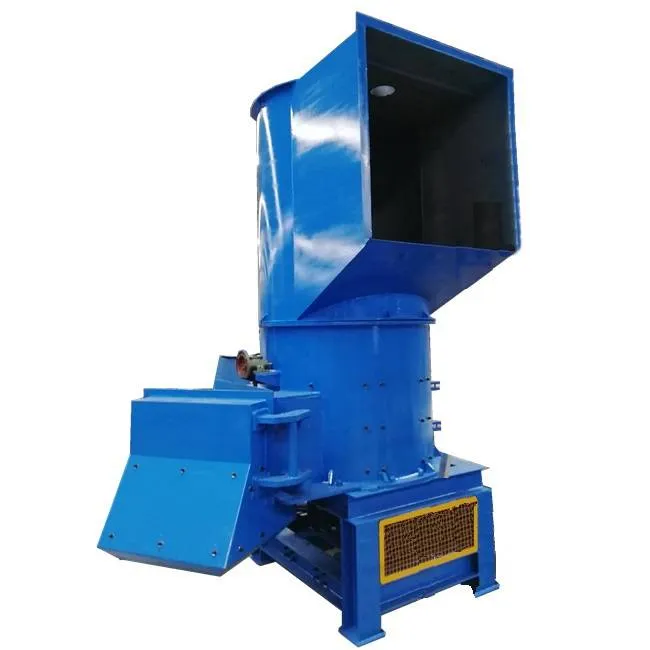

Nov . 27, 2024 11:40 Back to list
The Role of Scrap Metal Plants in the Recycling Industry
In recent years, the importance of recycling has gained significant attention due to the increasing concerns over environmental sustainability and resource conservation. Among the various sectors within the recycling industry, scrap metal plants play a crucial role in processing recyclable metals and reducing environmental impact. This article delves into the operations, benefits, and challenges faced by scrap metal plants, highlighting their vital contribution to both the economy and the environment.
Understanding Scrap Metal Plants
Scrap metal plants, also known as metal recycling facilities, are specialized facilities that collect, process, and recycle metal waste from various sources. These sources include industrial manufacturing remnants, discarded vehicles, old appliances, and construction debris. The process typically begins with the collection of scrap metal, which can be ferrous (containing iron) or non-ferrous (such as aluminum, copper, and brass).
Once the materials are gathered, they are transported to the plant where they are sorted, cleaned, and processed. Sorting is an essential step, as different metals have distinct recycling processes and market values. Advanced technology, including magnetic separators and shredders, is often employed to streamline this process. After sorting, the metals are compacted into bales or processed into smaller pieces, making them easier to transport and melt down.
Economic Benefits
Scrap metal plants contribute significantly to the economy. They create jobs, support local communities, and contribute to the overall economic landscape. According to the Institute of Scrap Recycling Industries (ISRI), the scrap recycling industry employs hundreds of thousands of workers in the United States alone, supporting jobs in various sectors, including transportation, logistics, and manufacturing.
Furthermore, recycled metals are typically more cost-effective than newly mined materials, reducing production costs for manufacturers. This economic advantage encourages companies to use recycled metal, leading to a more circular economy. For instance, recycling aluminum saves up to 95% of the energy required to produce new aluminum from raw ore, making it an attractive option for manufacturers.
Environmental Benefits

The environmental impact of scrap metal plants is profound. Recycling metals helps to conserve natural resources and reduce the need for mining, which can lead to habitat destruction and pollution. By recycling scrap metal, plants significantly reduce greenhouse gas emissions associated with mining and metal production. Additionally, recycling helps to decrease the amount of waste sent to landfills, further mitigating environmental degradation.
Scrap metal recycling also plays a crucial role in reducing energy consumption. The energy required to produce new metal from virgin ore is substantially higher than that needed to recycle existing metal. This reduction in energy use not only decreases overall energy costs but also contributes to a decrease in fossil fuel consumption, aligning with global efforts to combat climate change.
Challenges Faced by Scrap Metal Plants
Despite their many benefits, scrap metal plants face several challenges. One of the main issues is the fluctuating market prices of metals, which can affect profitability and operational stability. When metal prices drop, it can lead to reduced collection and processing activities, impacting jobs and local economies.
Another challenge is the growing complexity of the materials that need to be recycled. Modern products often contain multiple metals and other materials, complicating the recycling process. Scrap metal plants must continually invest in technology and training to effectively process these materials and remain competitive.
Finally, regulatory compliance is an important consideration for scrap metal plants. Ensuring adherence to environmental regulations and maintaining sustainable practices requires ongoing efforts and resources. Failure to comply can result in significant legal and financial repercussions.
Conclusion
Scrap metal plants play a vital role in promoting sustainability and supporting the economy by recycling metal waste. Through their operations, they contribute to resource conservation, energy savings, and the reduction of greenhouse gas emissions. Despite facing challenges, the ongoing advancements in technology and increasing public awareness of the importance of recycling provide opportunities for growth within this sector. As society continues to prioritize environmental stewardship, the role of scrap metal plants in the recycling industry will undoubtedly grow, making them essential components of a more sustainable future.
Latest news
The Future of Metal Recycling: Revolutionizing Waste Management
NewsMay.14,2025
Optimizing Waste with Recycling Lines
NewsMay.14,2025
Municipal Solid Waste Sorting Line: Revolutionizing Waste Management
NewsMay.14,2025
Metal Shredders: Essential Tools for Efficient Recycling
NewsMay.14,2025
Maximize Your Profits with a Copper Wire Granulator
NewsMay.14,2025
Home Metal Shredder: A Smart Choice for Your Home Recycling Needs
NewsMay.14,2025